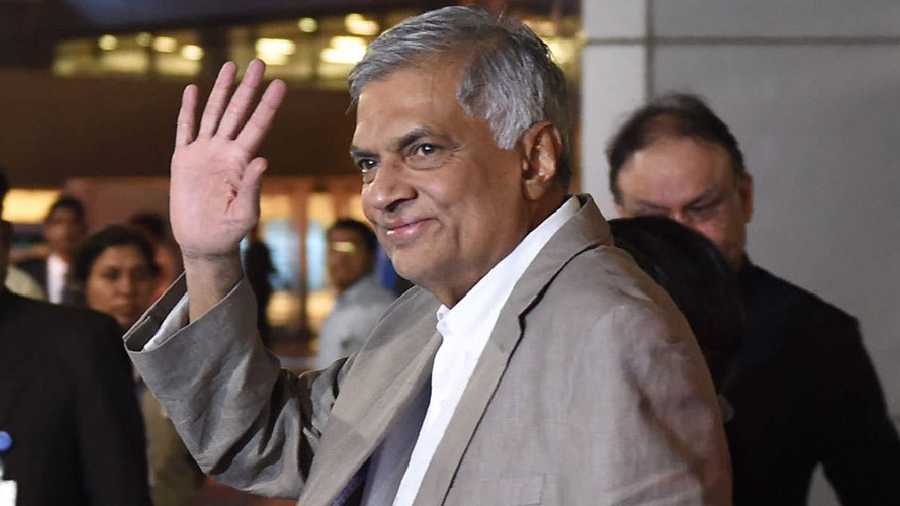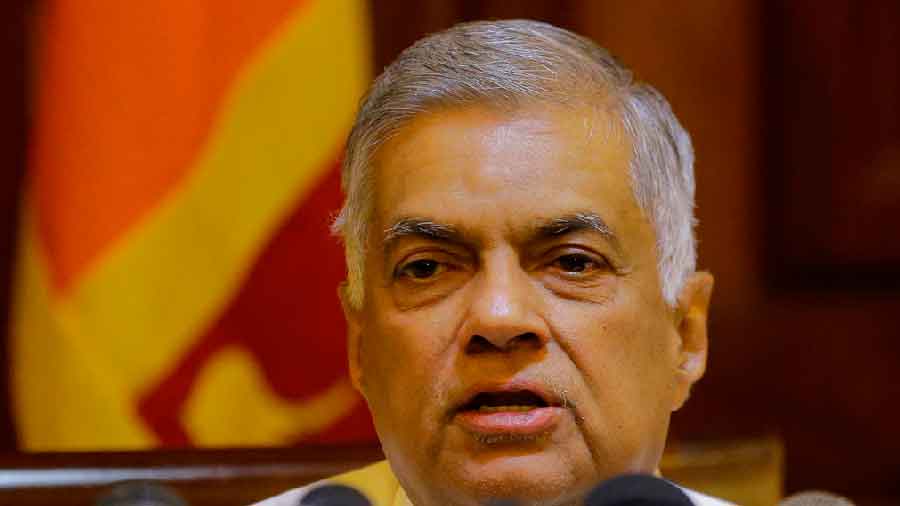In an unusual move, Sri Lanka's new Prime Minister Ranil Wickremesinghe has extended public support to the protesters, who have been camping at a popular beachfront here for over a month calling for President Gotabaya Rajapaksa's resignation for mishandling the country's worst economic crisis.
Appointment of a new prime minister in Sri Lanka has failed to appease anti-government protesters demanding the resignation of the president for the country’s disastrous economic crisis.
The Prime Minister on Saturday said he had appointed a committee to look after the interests of the 'Gota Go Home' village protesters who have been camping at Colombo's Galle Face Green since April 9.
Wickremesinghe, who was appointed by President Gotabaya Rajapaksa as Prime Minister after asking his elder brother Mahinda Rajapaksa to quit, said the young protesters in the village would be safeguarded and their views would be sought for the shaping of future policy.
In an interview with the BBC Sinhala Service, the Prime Minister said the 'Gota Go Gama' protest should be continued to bring a change in the political system in the country and let the country's youth take the responsibility to lead.
Wickremesinghe, the 73-year-old United National Party (UNP) leader, was appointed as Sri Lanka's 26th prime minister on Thursday as the country was without a government since Monday when prime minister Mahinda Rajapaksa resigned after violence erupted following an attack on the anti-government protesters by his supporters.
The attack triggered widespread violence against Rajapaksa loyalists, leaving nine people dead and wounding over 200 others.
Rajapaksa's Sri Lanka Podujana Peramuna Party (SLPP) has extended their support to Wickremesinghe and almost all parties represented in the 225-member Parliament have said although they wouldn't be a party to Wickremesinghe's government they would support him in his effort to pull Sri Lanka out of the current economic crisis.
Political sources said two more ministers are to be appointed to the interim Cabinet on Sunday. Rajapaksa appointed four of them on Saturday.
At least 78 parliamentarians, including the former prime minister Mahinda Rajapaksa, had faced arson attacks on their private properties during the unrest on May 9.
At the government parliamentary group meeting held on Saturday, the attendance was low as parliamentarians still fear for their lives despite the imposition of curfew.
Those present blamed the Inspector General of Police for what they alleged as "police inaction" to prevent arson attacks on the properties of government parliamentarians.
Sri Lanka is going through the worst economic crisis since independence in 1948.
A crippling shortage of foreign reserves has led to long queues for fuel, cooking gas and other essentials while power cuts and soaring food prices heaped misery on the people.
The economic crisis also triggered a political crisis in Sri Lanka and a demand for the resignation of the powerful Rajapaksas.
President Rajapaksa sacked his Cabinet and appointed a younger Cabinet as a response to the demand for his resignation. A continuous protest opposite his secretariat has now gone on for well over a month.












